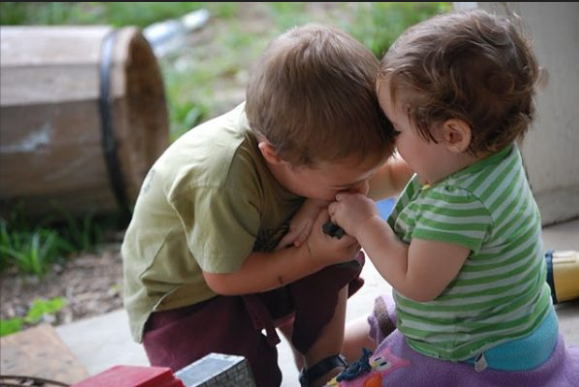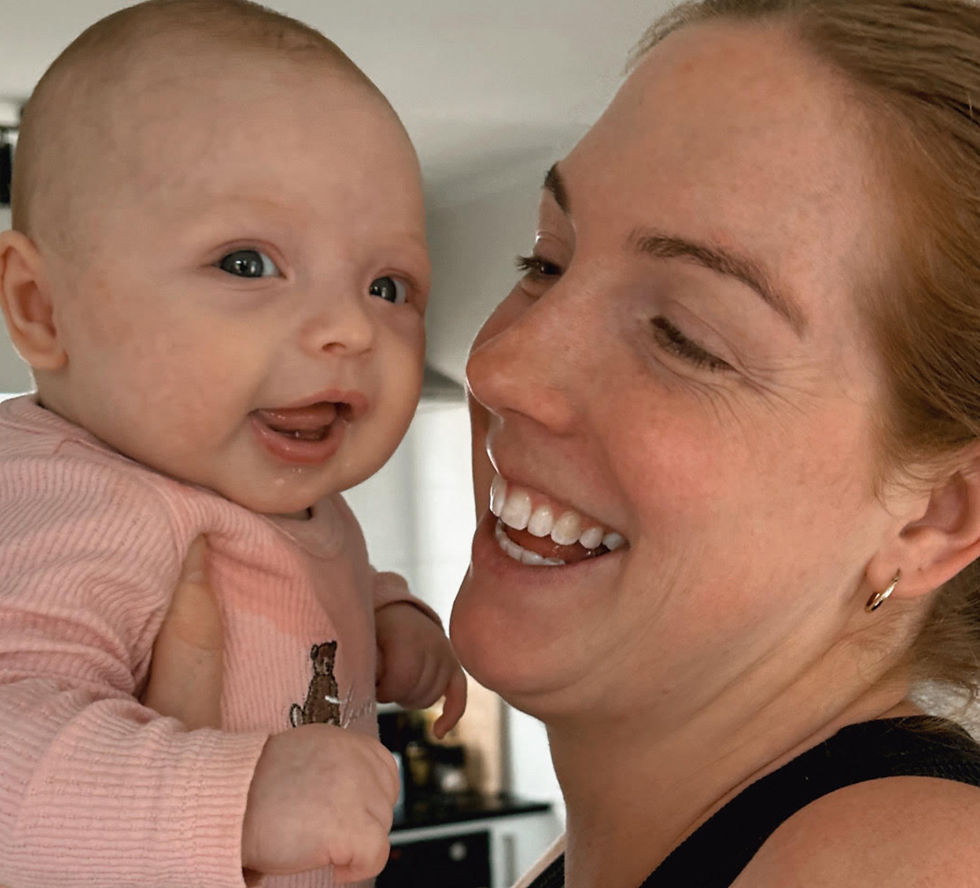Biting in early childhood
- Aug 12, 2024
- 3 min read
Updated: May 26, 2025

Navigating Biting with Compassion at Magic Garden: A Guide for Parents
If your child attends an early childhood centre, you may one day receive a message like:
"Today, your child was involved in a biting incident."
Whether your child was bitten, or was the one who bit, this kind of news can stir up big emotions—concern, guilt, frustration, or confusion. At Magic Garden, we want you to know: biting is a normal, temporary behaviour that many young children experience. It is part of how they explore, communicate, and grow.
Why Does Biting Happen?
From a Reggio Emilia perspective, children are seen as capable, curious, and deeply expressive—even before they have the words to communicate their needs. Biting isn’t “naughty” behaviour—it’s a message.
Some reasons children bite include:
Sensory discovery – Infants and toddlers often explore with their mouths, especially when teething.
Emotional release – Strong feelings like anger, excitement, or anxiety may lead to biting when words aren’t available.
Seeking connection or attention – A child might bite to engage with others or respond to a challenging social moment.
Feeling overwhelmed – Crowded spaces, loud noise, or fast transitions can contribute to emotional overload.
Our role as adults is to look beneath the behaviour and ask, “What is the child telling us?”
Seeing Biting as Communication, Not Misconduct
Rather than focusing on punishment, we aim to understand and support. We avoid labelling children as “biters” because these identities can be harmful and untrue. A child is not a behaviour—they are a person learning how to be in the world.
At Magic Garden, we respond to biting with empathy, clarity, and consistency. Our goal is to guide—not shame—and help children develop new, more effective ways to express themselves.
How We Support Children During a Biting Incident
Whether your child is the one who bit or was bitten, we follow a thoughtful and responsive process:
1. Immediate Care
We comfort the child who was hurt and ensure their physical and emotional wellbeing.
2. Understanding the Trigger
We stay close to the child who did the biting, offering calm and presence. We help them feel safe enough to reflect, not fearful of punishment.
3. Clear, Respectful Language
We name what happened without judgement. For example:
“You felt upset when Max took the blocks. You didn’t know what to do, so you used your teeth. Let’s find another way next time.”
“Your arm was bitten. That hurts. I’m right here. You are safe.”
What Happens Afterward?
Once emotions have settled, we gently revisit the moment and guide the child through it with care. This might include:
Talking through the situation using simple language.
Naming emotions (“You felt angry,” “You wanted space,” “You were excited”).
Practicing alternatives like using words or signals (“Stop,” “My turn,” “Help me”).
Offering reparative actions, like bringing a tissue, a cool cloth, or simply checking in on their friend.
Rather than forcing a quick apology, we guide children to take real responsibility in a way they can understand and feel.
When Biting Happens More Often
Sometimes biting occurs in clusters—it may come and go as part of development, or it may reflect a child’s need for extra support.
In these cases, we:
Observe closely to identify patterns or triggers.
Offer calm, consistent adult presence to coach through difficult moments.
Adapt the environment to reduce stressors or overcrowding.
Use sensory activities and soothing tools to support emotional regulation.
Work closely with you to share strategies and insights across home and centre life.
Growing Through the Challenge
We understand how difficult biting can feel—but we want to reassure you:This is a phase. Children move through it with the right support, understanding, and consistency.
At Magic Garden, we honour the Reggio Emilia belief that every child is rich in potential. Challenging behaviours, like biting, are invitations for us to connect more deeply, respond more intentionally, and grow together—children, teachers, and families.
If you ever have questions or want to talk about your child’s behaviour, we welcome those conversations. We’re in this with you.




Comments